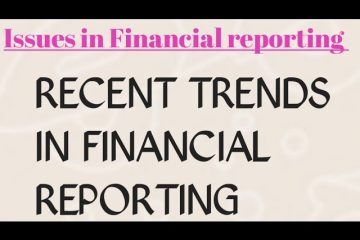To choose the best financing option for a business, evaluate the specific needs and financial situation. Consider factors such as cost, terms, and flexibility for the most suitable choice.
When seeking financing for your business, it is necessary to carefully weigh the options to ensure that it aligns with your financial goals and business needs. Multiple financing options exist, ranging from traditional bank loans to alternative lenders and private investors.
Understanding the advantages and disadvantages of each option will help you make an informed decision that best suits your business. By thoroughly researching and considering your unique circumstances, you can select the financing option that provides the necessary support for your business growth and development.

Credit: advancepointcap.com
Assessing Business Needs
When starting or growing a business, finding the right financing option is crucial for success. Before diving into different funding options, it’s important to assess the specific needs of your business. This involves identifying your financial goals and evaluating your current financial situation. By understanding your business needs thoroughly, you can make an informed decision that aligns with your goals and sets the foundation for long-term success.
Identifying Financial Goals
In order to choose the best financing option for your business, it’s essential to clearly define your financial goals. This involves determining how much funding you require, what the funds will be used for, and the timeframe within which you expect to achieve your goals. Identifying these goals will help you narrow down the options and find the most suitable financing solution.
- Define the specific amount of funding required for your business.
- Establish the purpose of the funds, whether it’s for expanding operations, purchasing equipment, or hiring additional staff.
- Set a realistic timeframe for achieving your financial goals.
Evaluating Current Financial Situation
Before considering any financing option, it’s important to evaluate your current financial situation. This involves conducting a comprehensive analysis of your business’s financial health, including cash flow, revenue, and existing debts. Understanding your current financial situation will help you determine your borrowing capacity and assess the feasibility of different financing options.
- Assess your cash flow to determine if your business generates enough revenue to cover loan payments.
- Analyze your revenue streams and projections for future growth.
- Take stock of any existing debts or financial commitments.
By evaluating your current financial situation, you can gain clarity on your business’s financial position and make better decisions regarding funding options. This analysis will also help you identify areas for improvement and develop a more accurate picture of the funding required for your business.
Exploring Financing Options
Starting a business or expanding an existing one often requires careful consideration of the financing options available. The right financing can provide the necessary capital to fuel growth and sustain operations. It’s crucial to explore the various financing options to identify the best fit for your business. Here’s a breakdown of traditional loans, venture capital funding, angel investors, and crowdfunding to guide you towards making an informed decision.
Traditional Loans
Traditional loans from banks and financial institutions remain a popular choice for many businesses. They offer fixed interest rates and a structured repayment plan. Prospective borrowers need a solid business plan and a good credit score to qualify.
Venture Capital Funding
Venture capital funding involves investors providing capital to businesses in exchange for equity. This option suits high-growth potential companies seeking substantial investment. However, it often entails giving up some control and ownership in the business.
Angel Investors
Angel investors are individuals who invest their own money into businesses in exchange for equity. They often seek to contribute their expertise and industry connections in addition to financial support. This can be a good option for businesses in the early stages.
Crowdfunding
Crowdfunding enables businesses to raise funds from a large number of individuals, typically through online platforms. It allows for a broad outreach to potential backers and can create buzz around the business. However, it requires a compelling pitch and extensive marketing efforts.
Understanding The Costs Involved
Understanding the Costs Involved is crucial when choosing a financing option for your business. By carefully examining the interest rates, fees, and charges associated with different loan options, you can make an informed decision that aligns with your financial goals.
Interest Rates
Interest rates play a significant role in determining the overall cost of a loan. Comparing the interest rates offered by various lenders can help you identify the most cost-effective financing option for your business. Moreover, understanding whether the interest rates are fixed or variable is important as it can impact your long-term financial planning.
Fees And Charges
It’s crucial to consider the additional expenses that come with a loan, such as origination fees, application fees, and prepayment penalties. Being aware of these fees upfront can help you accurately assess the total cost of borrowing and choose a financing option that best suits your budget and repayment preferences.

Credit: www.rok.biz
Evaluating Risks And Benefits
When choosing the best financing option for a business, it is essential to carefully evaluate the risks and benefits. Conduct a thorough analysis of each option to determine the potential impact on the business’s financial stability and long-term growth. This proactive approach will help in making an informed decision that aligns with the business’s objectives and reduces potential drawbacks.
Risk Of Debt
One of the key considerations when evaluating financing options for a business is the risk of debt. Taking on debt can be both advantageous and risky, so it’s crucial to carefully assess the potential consequences before making a decision. Here are a few factors to keep in mind:
- Interest rates: Higher interest rates can significantly impact your business’s profitability, making it important to consider the affordability of the interest payments.
- Repayment terms: Understanding the terms of repayment is vital, as some loans may require larger installments or balloon payments, which can strain your cash flow.
- Collateral: Many lenders require collateral to secure a loan, such as real estate or equipment. Evaluating the value and potential risk associated with providing collateral is essential.
- Impact on credit: Taking on too much debt or failing to make timely payments can negatively affect your business’s credit score, limiting future financing options.
Equity Considerations
Another important aspect to consider in financing options is equity considerations. Equity financing involves selling a portion of your business to investors in exchange for capital. Here are a few key points to evaluate:
- Ownership stake: Giving up a percentage of ownership means sharing decision-making power and potential profits with investors, which may impact your long-term vision for the business.
- Investor compatibility: It’s essential to find investors who align with your business goals and values to ensure a harmonious partnership in managing and growing the company.
- Exit strategy: Consider the investor’s exit strategy, as they may require a return on their investment within a specific timeframe. Understanding their expectations can help you plan accordingly.
- Access to expertise: In addition to funding, equity investors can bring valuable expertise, industry connections, and mentorship. Assessing the potential benefits of these resources is crucial.
Impact On Control
The impact on control refers to how financing options can influence your decision-making authority and autonomy within the business. Here are some key factors to consider:
- Ownership dilution: When selling equity, the ownership of your business will be diluted. Assess the level of control you are willing to relinquish to investors.
- Board seats: Investors may demand board seats, giving them a say in crucial decisions. This can affect your ability to implement your own vision for the company.
- Day-to-day operations: Financing options can also impact your freedom to make decisions regarding key operational aspects. Consider how different funding sources may affect your ability to run the business as you see fit.
- Long-term goals: Ensure that the financing option aligns with your long-term goals for the business. It’s important to choose a path that allows you to maintain the level of control necessary to achieve your vision.
Building A Strong Financial Plan
Budgeting And Forecasting
Estimate future financial needs based on current income and expenses.
Create a budget that outlines projected revenue and costs.
Cash Flow Management
Monitor and optimize the flow of cash in and out of the business.
Ensure timely payments to avoid cash flow disruptions.
Securing Collateral
- Identify valuable assets like real estate or equipment for collateral.
- Present collateral to lenders to secure financing.
Seeking Professional Advice
Business owners can benefit greatly from Consulting with Financial Advisors and seeking Legal Guidance when selecting a financing option.
Consulting With Financial Advisors
Financial advisors offer valuable insights into the best financing options based on a business’s needs.
Legal Guidance
Legal professionals can ensure that business owners understand the legal implications of their financing choices.
Making The Final Decision
When deciding on the best financing option for a business, it’s crucial to carefully consider the available choices and their respective benefits and drawbacks. By analyzing the long-term impact on the company’s financial health and growth potential, entrepreneurs can make a well-informed and strategic decision.
Comparing Offers
When it comes to making the final decision on a financing option for your business, comparing offers is crucial. Take the time to carefully assess the terms and conditions presented by different lenders or investors. Analyze the interest rates, repayment terms, and any additional fees or charges that may be involved. It’s essential to have a clear understanding of the total cost of financing and how it will impact your business’s cash flow. Creating a table can be useful for comparing the various offers side by side. This will allow you to easily compare the key details and identify the most favorable options. Assessing the long-term implications of each offer is important. Consider not only the immediate cost but also the overall impact on your business’s profitability and growth potential.Negotiating Terms
Once you have narrowed down your options and identified the most suitable financing offers, the next step is to negotiate the terms. Remember, these terms are not set in stone, and there is often room for negotiation. Boldly discuss your requirements and concerns with potential lenders or investors. Seek to find common ground that is mutually beneficial. Negotiation can involve various aspects such as interest rates, repayment schedules, collateral requirements, and any additional perks or benefits. Keep in mind that both parties aim to reach an agreement that works for everyone involved. Be sure to consider the reputation and track record of the lender or investor as well. A trustworthy and reliable partner is invaluable when it comes to financing your business’s growth and success. In conclusion, making the final decision on the best financing option for your business requires careful consideration and analysis. Comparing offers and negotiating terms can help you secure a favorable financing arrangement for your business’s unique needs. Remember, the right financing partner can be instrumental in achieving your goals and driving long-term success. So take the time to research, assess, and negotiate to find the ideal financing solution.
Credit: www.linkedin.com
Frequently Asked Questions On How To Choose The Best Financing Option For A Business
What Is The Best Financial Option For A Business?
The best financial option for a business depends on factors like its needs, goals, and risk tolerance. Options include loans, investors, crowdfunding, or self-financing. Evaluate the pros and cons of each option carefully to make the best choice for your business’s financial health and growth.
How Do I Choose A Finance Option?
To choose a finance option, consider your needs, financial situation, interest rates, terms, and repayment flexibility. Consulting a financial advisor can also help you make an informed decision.
Which Source Of Finance Is Best For Business?
Equity financing is often preferred for its flexibility and minimal repayment pressure. However, debt financing can provide quick funds without giving up ownership stake. Choose the option aligning best with business goals and financial situation.
What Are The 5 Factors That Businesses Consider When Choosing A Source Of Finance?
Businesses consider the following factors when choosing a source of finance: cost, availability, flexibility, risk, and control. Costs associated with obtaining the finance, such as interest rates, are important. Availability refers to the accessibility of the finance option. Flexibility entails the terms and conditions of the financing.
Risk evaluates the potential negative impact on the business. Lastly, control refers to the ownership and decision-making power associated with the chosen finance source.
What Are The Key Factors When Choosing Financing Options For A Business?
When choosing financing, consider business stage, goals, financial health, and repayment terms.
Conclusion
Ultimately, choosing the best financing option for your business requires careful consideration of various factors such as your financial goals, current financial situation, and long-term plans. By assessing the pros and cons of each option, understanding the terms and conditions, and seeking professional advice, you can make an informed decision that aligns with your business objectives.
Remember, the right financing option can provide the necessary capital to fuel your growth and increase your chances of success.


